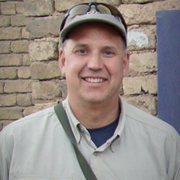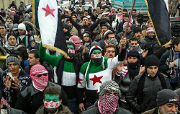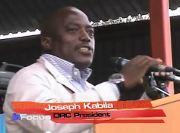 |
| Photos courtesy Christian Aid Mission |
The findings are deeply troubling: in just the last 18 months, the commission documented 203 incidents of violence in the name of religion, resulting in some 1,800 casualties and more than 700 deaths. Sarla Mahara is the director for South Asia for Christian Aid Mission. She says those findings are likely the result of the use of the blasphemy law. "The perception is correct, that it's being used practically every day."
Mahara observes that while the numbers are high, they're probably not telling the whole story. The big stories--like the March attack on the Joseph Colony near Lahore--grab headlines, but the reality is, "Even common people are using this to get back at their neighbors perhaps that they have had a quarrel with, or sometimes, there's jealousy. Even business competitors will use this."
What does seem common is that small sparks provoke huge reactions. Are they as out of proportion as they seem? Mahara explains, "Sometimes their neighbors will perceive them as somebody who is spying on them.
So, there's a much deep-rooted distrust." With that kind of distrust already in play, "When they look at Christians, they look at a foreign influence. That image of Christ being foreign is very, very strong. So it's not only that they're trying to hurt their own neighbors, but their hatred really is toward Christians.
"Faith in Christ in a place like Pakistan means life and death. You do the wrong thing, or you're perceived as being forceful or something, [and] they can use it against you," says Mahara. Under that kind of pressure, it's only natural for Christians to seek redress from the law. However, in Pakistan, that's unlikely to end in justice.
Last week, International Christian Concern reported that Christians in Pakistan staged a protest in Lahore, protesting against police discrimination and inaction. According to their report, local governments do little to protect their communities against mob violence, muggings, assaults, and kidnappings. In fact, they assert that police actively intimidate the Christian community to keep them from reporting incidents of violence.
Enter: frustration. Though the constitution guarantees religious freedom, Christians increasingly suffer under Pakistan's blasphemy laws. Conviction under Section 295-C of the blasphemy law for derogatory comments about Muhammad is punishable by death or life imprisonment, which in Pakistan, is 25 years.
And yet through prayer, Mahara says God is strengthening indigenous believers who resolved to place His Word into the hands of 100,000 Pakistani people over a 20 year period. "This ministry not only gives away the Bibles, but they also do other kinds of literature. They do seminars where they do discipleship training.
They have an extensive ministry in church planting, and they run schools, so they have a lot of outreach programs."
With the antipathy in play, how does that affect local Gospel workers? Mahara admits they have to be careful. "Even when people come asking for something, they have to be very, very cautious because they don't know if it's somebody who's really genuinely inquiring about faith or if it's somebody who is spying on you." However, the intimidation campaign has not cowed the Church into silence.
"In spite of all the upheavals around us, God blessed our ministry in many ways this year," a leader reported. "The hallmark of this year's ministry was the achievement of our 20-year goal to give 100,000 Bibles into the hands of the masses in Pakistan. The Bible is the epicenter of our ministry. We believe there is no alternative to verbal proclamation of the gospel, followed by the written Word of God."
According to Christian Aid Mission, your link to indigenous missions, during the year 2012 there was an acute shortage of Bibles due to political reasons. "However, we were blessed to have an adequate stock of Scriptures for our ministry through the generosity of friends at Christian Aid," a missionary wrote. "You are a vital part of this ministry. Because of your active support, we have been able to be effective for the kingdom of God in Pakistan.
"The recent events in the Muslim world demand from us a serious reconsideration of communicating the truth in love," he added. "Jesus tells us to share the Truth. The Truth sets people free, and yet, how do we do this?
One way is to offer them a copy of Scriptures, which explain God's love. That is why, throughout the year, our dedicated evangelistic teams have been going out, in spite of the most volatile situation and immense heat. They were able to sell 406 Bibles, 139 New Testaments, and 1010 portions of Scriptures to people in various areas during a two-month trip."
Missionaries sell the Bibles and other Christian literature so they won't be considered as proselytizing. People buy out of their own free will. Missionaries purchase the Bibles and literature and sell them for a fraction of the cost to be legally safe.
The mission in Pakistan continuously trains new leaders for the work of evangelism. Seventy students have been discipled through the years, while 100 young people attended a recent training seminar. The ministry provides temporary housing and discipleship for believers rejected by their families because of their faith. The mission also has a flourishing Christian school for 125 children through fifth grade. And, due to the desperate plight of earthquake and flood victims, ministry leaders have established a relief and rehabilitation branch, where more than 100 shelter rooms were built for people whose houses were washed away during vast flooding.
Indigenous missionaries set goals, count the cost, and follow the Lord to the finish. Mahara notes, "Whatever form of outreach that they are doing--going door-to-door or talking to a neighbor, pray for their safety. Pray for God's special anointing for these people that they will have the wisdom."
This year they hope to raise $5000 to erect a simple building for worship in a poor area where believers now are worshiping in a makeshift tent made of plastic bags. Pray, too, that the Christian population will continue to grow. There's already a steady but significant trickle of Muslims joining churches.


.svg.png)

